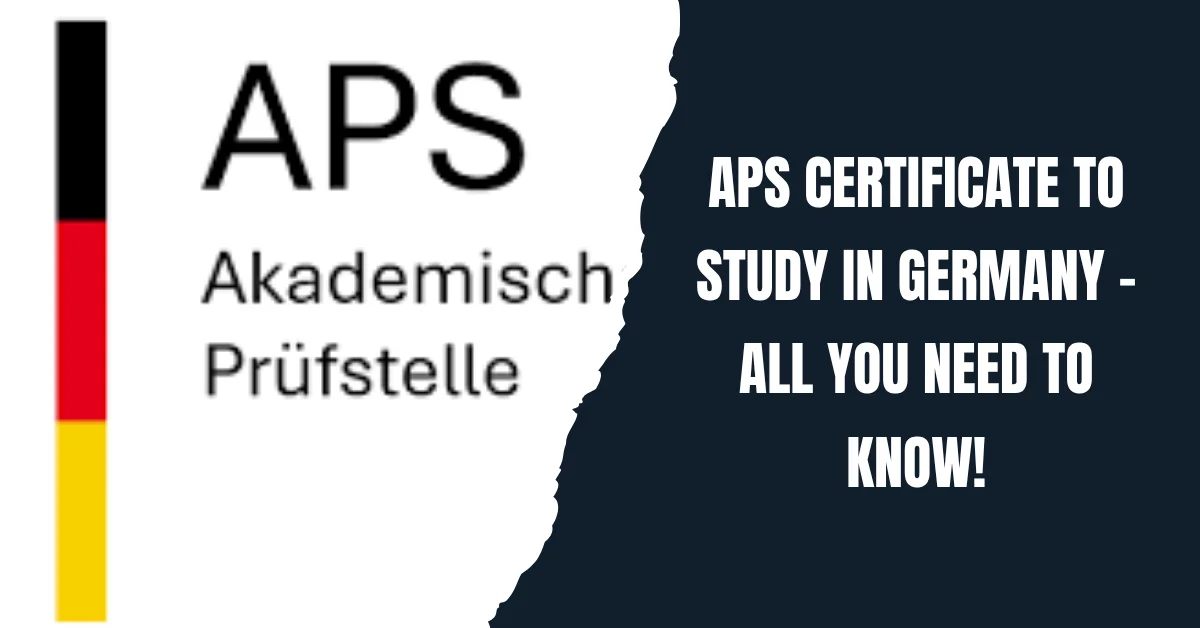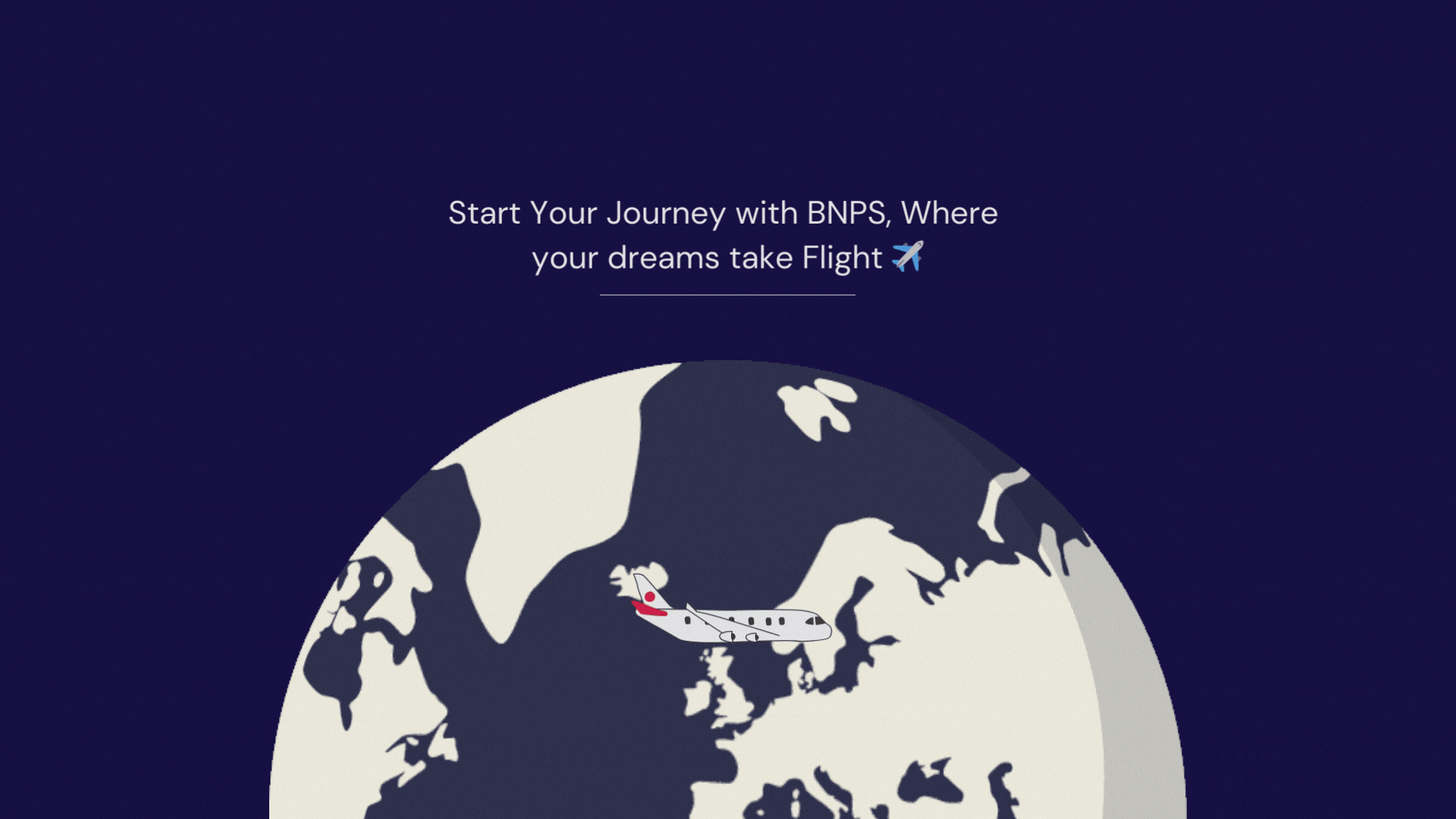Are you aspiring to pursue a master’s in data science in Germany? We are sure you are!
Studying abroad is amazing and challenging. You will face several challenges while pursuing your master’s in data science in Germany, such as:
- Difficulty in meeting language requirements, such as German or English proficiency tests,
- You might not be aware of the German education system and the specific requirements to pursue your master’s in Germany.
- Uncertainty about the job market for data scientists in Germany.
- You might have concerns regarding the cost of tuition and living expenses in Germany.
Don’t worry! This blog will provide you with a piece of comprehensive information about Masters in Data Science programs in Germany, including:
- Course structure and curriculum.
- Admission requirements and application process.
- Tuition fees and cost of living.
- Career prospects and job markets
- Top universities to study master’s in Germany.
At the end, we will also provide some tips and advice for Indian students on overcoming the challenges of studying in Germany such as preparing for language tests, finding scholarships and funding opportunities, and networking with other Indian students in Germany.
By reading this blog, you will gain a deeper understanding of the opportunities and challenges you can face while studying in Germany.

What is data science?
Data science is an interdisciplinary field that combines statistics, scientific computing, scientific methods, processes, algorithms, and systems to extract insights from structured or unstructured data.
Data scientists use various tools to collect, clean, analyze, and visualize data such as MySQL, Python, and SPSS. They take this information to figure out hard problems and make smart choices.
Here are some instances of what data scientists do:
- Develop and train machine learning modules to predict customer behavior, fraud, and other outcomes.
- Examine massive sets of data to spot trends and patterns.
- Develop and implement data-driven solutions to business problems.
- Build data visualizations to communicate insights to stakeholders.
Like other fields, the demand for data science is rapidly growing, and new tools and techniques are being developed all the time.
Why study for a master’s in data science in Germany?
Germany is ranked in the top three countries renowned for offering exceptional research opportunities.
Germany is a great place to study if you want to work with data. Getting a master’s degree in data science in Germany can lead to good job opportunities because big companies often hire people who have completed this program.
Here are some reasons to pursue a master’s in data science in Germany:
- High-quality education: Germany is home to some of the world’s top universities for data science, including Ludwig Maximilian University of Munich, Technical University of Munich, and Technical University of Berlin.
These universities offer rigorous programs that will prepare you for a successful career in data science.
- Strong job market: Germany has a strong job market for data scientists. As a data scientist in Germany, you can search for jobs in the fields of IT, healthcare, and finance.
Companies operating in these fields are looking for the data scientist to help them to make better and more informed decisions for their businesses.
- Affordable tuition fees: Tuition fees for public universities in Germany are very affordable, especially for international students.
This makes Germany a great option for those students who want to pursue a master’s in Germany on a budget.
- Opportunity to live and work in a European country: Like other countries, Germany is also the best place to live and work. Germany has a high standard of living, a strong economy, and a diverse culture.
Many different languages are spoken in Germany, which opens up many job opportunities in European countries.
In addition to these general reasons, there are also several specific benefits to studying data science in Germany.
- For example, many German universities offer English-taught data science programs, which is ideal for international students who do not speak German.
- Additionally, the German government offers several scholarships and funding opportunities for international students.
Overall, Germany is a great place to study data science. It offers high-quality education, a strong job market, affordable tuition fees, and the opportunity to live and work in a European country.
Benefits of studying masters in data science in Germany
There are so many reasons to pursue your masters in Germany:
- Highly regarded universities for data science: A master’s degree in data science from a German university holds a lot of value and is recognized globally by various employers in banking sectors, multinationals, and manufacturing industries.
- Highly profitable internship opportunities: German universities are collaborating with various international companies globally that frequently take on students for internships and various industrial programs.
This will be a great opportunity for international students to gain practical industry experience while they study.
- Opportunities for part-time employment: Studying abroad can be expensive, However, Students enrolled in educational programs in Germany are eligible to work part-time.
With a study visa, you can work for up to 20 hours a week and 120 days of part-time employment around the year.
In addition to these general reasons, there are also several specific benefits to studying data science in Germany.
If you are interested in studying data science in Germany, you should start by researching different universities and programs.
Master’s in data science in Germany: Program highlights
The best universities for masters in data science in Germany
Here are some of the top universities for master’s in data science in Germany, based on the international rankings:
Course structure and curriculum for masters in data science in Germany
The course structure and curriculum for data science programs in Germany can vary depending on the university and the program that you have chosen.
Here is an example of the basic course structure that is most common for all universities in Germany:
Core modules
The core modules in the data science programs in Germany typically cover the following topics:
- Mathematics for data science.
- Statistics for data science.
- Programming for data science (like Python).
- Data mining and machine learning.
- Data visualisation and communication.
Specialization modules
- Artificial intelligence
- Natural language processing
- Computer vision
- Big data analytics
- Data science for business
Capstone Project
The capstone project is a new experience for you where you have to apply the skills and knowledge that you have learned throughout your course to solve real-world data science problems.
These projects can be individual or group projects, and these are often conducted in collaboration with industry partners.
Here is an example of course structure:
Semester 1
- Mathematics for data science
- Statistics for data science
- Programming for data science (Python)
- Data mining and machine learning
- Foundations for data science
Semester 2
- Programming for Data Science ®
- Data visualisation and communication
- Specialization module 1
- Specialization module 2
Semester 3
- Capstone project
- Specialisation module 3
- Specialisation module 4
Admission requirements for masters in data science in Germany
The admission requirements can be different for each university and the data science program you have chosen.
Here are the admission requirements for every university:
1. Technical University of Munich
(M.Sc) in Mathematics in Data Science
This program combines a high-profile education in mathematics with an emphasis on the incipient area of big data.
Key data:
- Type of Study: Full-time
- Credits: 120 ECTS
- Application period: Winter semester: 01.01-31.05 and summer semester: 01.09.-30.11.
- Start of the degree program: Possible for both winter and summer semesters.
- Required language proficiency: English
- Costs: 85.00 €
- Main location: Garching
Documents required for admission to this university (Online application form)
- Degree certificate and Diploma or subject and grade transcripts of studies to date.
- Transcripts of records
- Proof of English language proficiency tests
- Letter of motivation (in English)
- Essay (in English)
- Curriculum (e.g. module description)
- Complete and current resume
- Passport
- Initial Documentation (VPD) is required if the qualification for graduate studies (e.g., bachelor’s degree) is earned outside of the EU/EEA countries.
The university can also ask for additional documents like your educational background and your country of origin.
Most universities accept an English language proficiency score of 6.5 with no band less than 6 in the IELTS test, or a TOEFL score of 95 or higher.
Documents required at the time of enrollment in this university
Here is the list of documents required at the time of enrollment:
- Application for enrollment (signed).
- Degree certificate and Diploma (certified copy).
- Transcript of records (certified copy).
- Most current photo (as for ID)
- Electronic notification regarding your health insurance status from a German public health insurance provider
M.Sc. in Data Engineering and Analytics
- Type of Study: Full-time
- Standard duration of studies: 4 semesters
- Credits: 120 ECTS
- Main locations: Garching
- Commencement of the degree program: summer or winter semester.
- Language of instruction: English
- Costs: No tuition fees
- Professional profile: Data Science and Artificial Intelligence
- Application periods: Winter semester: 01 February – 31 May and summer semester: 01 September – 30th November.
Documents required for admission to this university
- A document outlining your motivations for selecting this master’s program and why you’ve chosen TUM, limited to a maximum of two pages.
- Your CV/resume
- A scientific essay of approx. 1000 words on a specified topic. Topics like:
a. Is it a good idea to shift data and processing to the cloud, and if so, when is the right time?
b. Which new challenges for computer science arise from recent advances in deep learning, e.g., autonomous driving, Google’s LaMDA, and Deepfakes?
c. With the recent development of powerful CPUs, is it still necessary to write highly efficient code?
- From “Analysis of Curriculum”
- Official documentation of a bachelor’s degree, which should include a course list with grades or an official transcript of academic records.
- Additionally, provide the curriculum details such as module descriptions, course catalog, or syllabus from the university degree program.
- Proof of your English language proficiency
- Applicants with a B.Sc. degree from Bangladesh, China, India, Iran, and Pakistan should submit their GRE or Gate scores (original scorecard or have the score sent directly via ETS).
- If your prior education, such as a bachelor’s degree, was obtained outside the EU/EEA countries, you should provide preliminary documentation (VPD).
- Applicants from China, India, and Vietnam are required to include an APS certificate.
- Please also include any certificates related to professional training or additional qualifications relevant to the program, such as participation in research competitions.
- A passport-size photograph
- A copy of your passport
2. Mannheim Masters in Data Science

Here is the program overview for the Master’s in Data Science at Mannheim University in Germany:
- Degree: Master’s of Science (M.Sc.)
- Typical duration of study: 4 semesters, equivalent to 2 years.
- ECTS credits: approx. 120
- Language of instruction: English
- Program start: Fall semesters (September) and spring semester(February)
- Semester fee: € 204,30), tuition fees for international students from non-EU countries: € 1500, and tuition fees for a second degree: € 650.
Documents required for admission to this university
- A bachelor’s degree in a relevant area like computer science, mathematics, or statistics.
Here are the following requirements must be met:
a. A Total of 180 ECTS credits or a standard period of study of six semesters
b. A total of at least 48 ECTS credits in informatics, mathematics, statistics, or empirical research methods
c. A final grade of 2.5 or better
- A strong academic record.
- Proof of your English language proficiency, here are the requirements:
a. Minimum score of 500 points in GMAT
b. A certificate of TOEFL iBT with a score of at least 72 points (TOEFL myBest scores are not recognized by the university)
c. An English Proficiency Certificate (CPE).
d. First Certificate in English (FCE), with a minimum grade of C
e. Certificate in Advanced English (CAE)
f. A certificate of IELTS with an overall band score of at least 6.0
g. A certificate of GRE with a total score equivalent to at least 500 GMAT points.
h. A continuous attendance of English classes throughout the German secondary school education with a minimum average of 7 points
3. Ludwig-Maximilians University, Munich

Here are the requirements for a master’s in data science at Ludwig-Maximilian University, Munich:
- Bachelor’s of Science (or equivalent) in Statistics or Informatics or related disciplines (at least 180 ECTS or equivalent).
- Excellent knowledge in Informatics and Statistics, you have to provide evidence of knowledge in the following fields:
a. Statistical Science and Data-based Modelling: This includes, in particular, statistics and topics such as data mining, probability theory, and machine learning (at least 30 ECTS or equivalent). (Average Grade 2)
b. Computer Science and Computational Methods: This includes, in particular, data structures and algorithms, database systems, programming principles and practice, and software engineering (at least 30 ECTS or equivalent). (Average Grade 3).
- Proficiency in English: at least B2 CEFR (or equivalent); English university entrance qualification, or first degree in English.
However, there are some admission requirements for data science in Germany that are common for other universities too:
- A relevant degree, like one in computer science, mathematics, or statistics, at the bachelor’s level.
- A strong academic record.
- English proficiency (IELTS or TOEFL scores).
Some universities may also require applicants to submit additional materials, such as a statement of purpose, letters of recommendation, GRE or GMAT scores, and a portfolio of work.
Admission requirements
The admission requirements for data science programs in Germany vary depending on the university and program. However, most universities have the following general requirements:
- A relevant degree, like one in computer science, mathematics, or statistics, at the bachelor’s level.
- A strong academic record.
- English proficiency (IELTS or TOEFL scores).
Some universities may also require applicants to submit additional materials, such as a statement of purpose, letters of recommendation, GRE or GMAT scores, and a portfolio of work.
Application process
The application process for data science programs in Germany typically involves the following steps:
- Submit an online application form.
- Submit the required supporting documents, such as transcripts, test scores, and letters of recommendation.
- Pay the application fee.
- Interview with the admissions committee (if required).
Deadlines
The deadlines for applying to data science programs in Germany vary depending on the university and program. However, most deadlines are in the spring or early summer for the following fall semester.
Tuition fees and cost of living for data science students in Germany
Tuition fees and cost of living for students in Germany can vary depending on the university and city you are living in.
In Germany, there are two types of universities, public universities and private universities.
Public universities
Public universities are those institutions dedicated to promoting free education for students originating from regions within the European Union (EU) and European Economic Area (EEA).
If you are a student from a non-EU/EEA country, then you will have to pay tuition fees, including some administrative charges, which may vary depending on the German university and the course you have selected.
The average tuition fees for international students at German public universities range from €300 to € 1000 per semester.
- To sum it up:
- German public universities are typically budget-friendly and enjoy global recognition.
Private Universities
Private universities rely heavily on independent funding. Therefore, students encounter higher tuition fees than public universities.
The average tuition fees for international students at German private universities range from €10,000/year to 20,000/year, depending on the degree level and study program.
For example, tuition fees at Jacobs University Bremen, a highly-regarded private institution, a Bachelor’s Degree in International Business Administration might be priced near €30,000 per year.
In summary:
- You can expect tuition fees to span from €10,000 to €20,000 per year.
- Tuition fees play a crucial role in funding private German universities.
Estimated living expenses in major German cities
The cost of living in Germany varies depending on the city. You can expect to spend a minimum of €850 per month, approximately around €10,236 annually.
However, the following is a rough estimate of living expenses in major German cities:
In addition to this there are other expenses as well:
- Health insurance: Students under 30 years of age or those in their first six semesters of study can opt for public health insurance, which costs around €110 per month.
- Liability insurance: This covers you in case you cause damage to someone else’s property or cause injury to another person. The cost of this insurance is usually around €50 to €100 per year.
- TV and radio license fees: In Germany, as a student, you have to pay a monthly fee for public broadcasting services. This fee is known as “Rundfunkbeitrag” is currently €18.36 per month.
Scholarships and funding opportunities
There are several scholarships and funding opportunities available for international students studying in Germany.
International students can access two different kinds of scholarships:
- Government-funded scholarships
- DAAD Scholarships: The German Academic Exchange Service (DAAD) offers many scholarships for international students to study in Germany at various degree levels. You can check the DAAD website to learn more about the scholarships.
- Erasmus+: It is one of the largest providers of scholarships in the EU. It is led by the European Commission to fund international students to study in Europe.It offers financial assistance for living expenses while taking part in a European study exchange program.
- Non-Government Funded Scholarships
- Heinrich Böll Foundation Scholarship: The Heinrich Böll Foundation offers scholarships to students who are committed to social and environmental justice. Applicants must have a strong academic record and be actively involved in extracurricular activities.
- Konrad-Adenauer-Stiftung Scholarship: The Konrad-Adenauer-Stiftung offers scholarships to students who are committed to democracy and the free market economy. You must have a strong academic record and be actively involved in extracurricular activities.
In addition to these general scholarships, there are also a number of scholarships that are specifically targeted at students pursuing a Master’s in Data Science in Germany.
Tips for applying for and securing financial assistance:
- Scholarship deadlines could be months in advance of the academic year’s commencement. Starting your research ahead of time is advisable to ensure you don’t miss out on opportunities.
- Explore all available resources and apply for multiple scholarships to increase your chances of getting scholarships.
- Highlight your achievements, skills, and professional experiences in your application.
- Make sure that your application is error-free, professionally presented, and well-structured.
Career prospects and the job market for data scientists in Germany
The demand for data scientists in Germany is high and growing. This is due to several factors, including:
- The increasing importance of data in businesses of all sizes
- The growing demand for data-driven decision-making
- The shortage of skilled data scientists in Germany
According to a recent study by Indeed, data science is the most in-demand job in Germany.
The study found that the number of job postings for data scientists in Germany has increased by over 200% in the past five years.
Typical job roles and salaries for data scientists
As a data scientist, you can work in a variety of industries in Germany, including:
- IT
- Finance
- Healthcare
- Manufacturing
- Retail
- Consulting
Some of the most common job roles for data scientists in Germany include:
- Data scientist
- Data Engineer
- Machine learning engineer
- Business intelligence analyst
- Data analyst
The average salary for a data scientist in Germany is around €66,000 per year. However, salaries can vary depending on the industry, job title, and experience level.
Opportunities for career growth and advancement
Data scientists have many opportunities for career growth and advancement in Germany. With their skills and knowledge, data scientists can move into management positions or start their businesses.
Here are some examples of career advancement opportunities for data scientists in Germany:
- Data scientist team lead
- Data science manager
- Chief data scientist
- Data science entrepreneur
Data scientists can also use their skills and knowledge to transition into other careers, such as:
- Data science consultant
- Data science researcher
- Data science professor
Overall, the career prospects and job market for data scientists in Germany are very good.
Conclusion
In summary, pursuing a master’s degree in data science in Germany presents a wealth of advantages, including top-tier education, a robust job market, reasonable tuition costs, and the chance to live and work in Europe.
This blog has comprehensively covered essential topics such as admission criteria, program highlights, financial aspects, and career opportunities.
Scholarships and financial support options are accessible to alleviate financial concerns, rendering Germany an appealing choice for international students.
The demand for data scientists in Germany is steadily growing, offering promising career prospects across various sectors. All in all, Germany emerges as an excellent destination for those aspiring to pursue a master’s in data science.




























